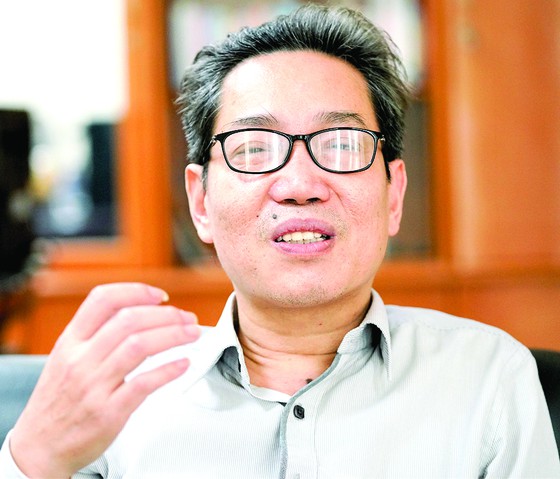 Politics & Law
Politics & Law

Director of the Legal Department Đinh Văn Minh spoke with Sài Gòn Giải Phóng (Liberated Sài Gòn) newspaper about the Government Inspectorate's research and opinion collection for amending the 2010 Inspection Law

|
| Đinh Văn Minh, director of the Government Inspectorate's Legal Department. Photo sggp.org.vn |
Director of the Government Inspectorate's Legal Department Đinh Văn Minh spoke with Sài Gòn Giải Phóng (Liberated Sài Gòn) newspaper about the Government Inspectorate's research and opinion collection for amending the 2010 Inspection Law
After nearly 10 years of implementation, what are the shortcomings of the 2010 Inspection Law?
The Inspection Law was approved by the National Assembly on November 15, 2010, and took effect from July 1, 2011. After nearly 10 years of implementation, the law and its guiding documents have created an important legal corridor to improve inspection activities, contributing to stabilising the socio-economic situation and improving the efficiency of State management and anti-corruption work. However, in its application, the law has revealed a number of limitations, causing difficulties and reducing the efficiency of inspection activities.
The biggest shortcoming is the spread and inconsistency of inspection agencies. The inspection lacks a smooth direction and administration from central to local levels.
The directions of the State inspection agency at higher levels have become formal and ineffective. The agency mainly has focused on guiding the annual inspection plans, preliminary review, professionals and training.
This has caused difficulties to control activities in the whole sector and created negative activities and violations recently.
Uncertainty about the scope of inspection and types of inspections such as administrative inspection, specialised inspection or routine inspection has created a lot of inspections, causing annoyance for the subjects for inspection.
In addition, the overlap between State inspection activities and the State Audit's activities remains a problem.
Why do inspection agencies not complete their inspection plans?
There are several reasons for such a situation. Mostly, inspection agencies have to carry out many unplanned inspections.
Poor quantity and quality of human resources also affect the inspection plans.
Many unexpected inspections make inspection agencies suspend their planned inspections.
Most of the unplanned inspections related to complicated cases, with signs of serious violations, taking more time and manpower.
Delays in issuing inspection conclusions also lead to overdue inspections, which has not been resolved.
The current Inspection Law defines general purposes and principles for administrative and specialised inspections to discover violations. But it has many limitations. What do you think about that?
Current specialised inspections are mainly to detect and handle violations of organisations, individuals and enterprises in all fields to ensure management order.
Meanwhile, the administrative inspectorate focuses on reorganising the management mechanism and ensuring the performance of public duties, as well as the observance of the law among State agencies, officials and employees.
Therefore, it is unreasonable as the Inspection Law defines the general purpose and principles for both types of inspections, leading to confusion in inspection work.
How should the Inspection Law be amended?
The law should institutionalise the provisions of the 2013 Constitution to suit the functions and tasks of inspection.
The amendment should focus on clarifying the position, role, functions, duties and powers of the inspection agencies, create a new step and innovation in inspections, and enhance the initiative and self-responsibility of inspection agencies in performing their assigned tasks and powers.
In addition, this draft law must be synced with judicial reform, renovation and strengthening of the Party's inspection, and ensure effective co-ordination between State agencies. — VNS




